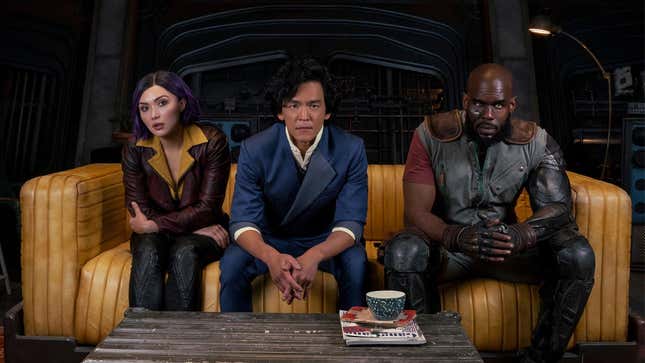
The Hollywood Reporter has the news this evening that Netflix’s live-action adaptation of classic anime series Cowboy Bebop has been cancelled after just one season.
The series, which was somewhat anticipated prior to release—at least based on what little we had to go on it—reportedly had decent viewership figures of 74 million hours worldwide during its first week (after launching on November 19), but those numbers went through the floor in the week after, dropping 59%. THR say that Netflix looked at those numbers, looked at the cost of the show and decided to pull the plug.
While its cancellation will break few hearts, it must be frustrating for fans to see once again a beloved anime given the adaptation treatment by a major Western studio or platform, only for that new take to fall flat and disappoint fans.
We wrote that the show needed some colour, but it also needed a lot more than that. Despite the enthusiasm and clear love for the source material from both cast and crew, the adaptation fundamentally failed to understand what makes anime—and Cowboy Bebop in particular—so special in its original format, leading to a live-action series that underwhelmed in almost every area (except for its soundtrack and Cho’s starring performance).
The AV Club’s review summed it up with:
Unlike the anime, the live-action series sometimes feels like it’s embarrassed to be associated with any of this. Things that the original expects you to just accept, like character names, are questioned and underlined and over-explained here. Iconic lines or songs are dropped like someone was checking them off a list, and other moments directly pulled from the source material are needlessly expanded to clearly spell out character motivations. If there’s a cool thing from the anime, this Cowboy Bebop will fight like hell to make it sillier or stupider.
André Nemec’s adaptation doesn’t trust the audience nor does it trust itself; it plasters over that lack of confidence with a sense of cartoonish detachment in the sets and the performances that practically say, “We’re not taking any of this too seriously, so you don’t have to either.”